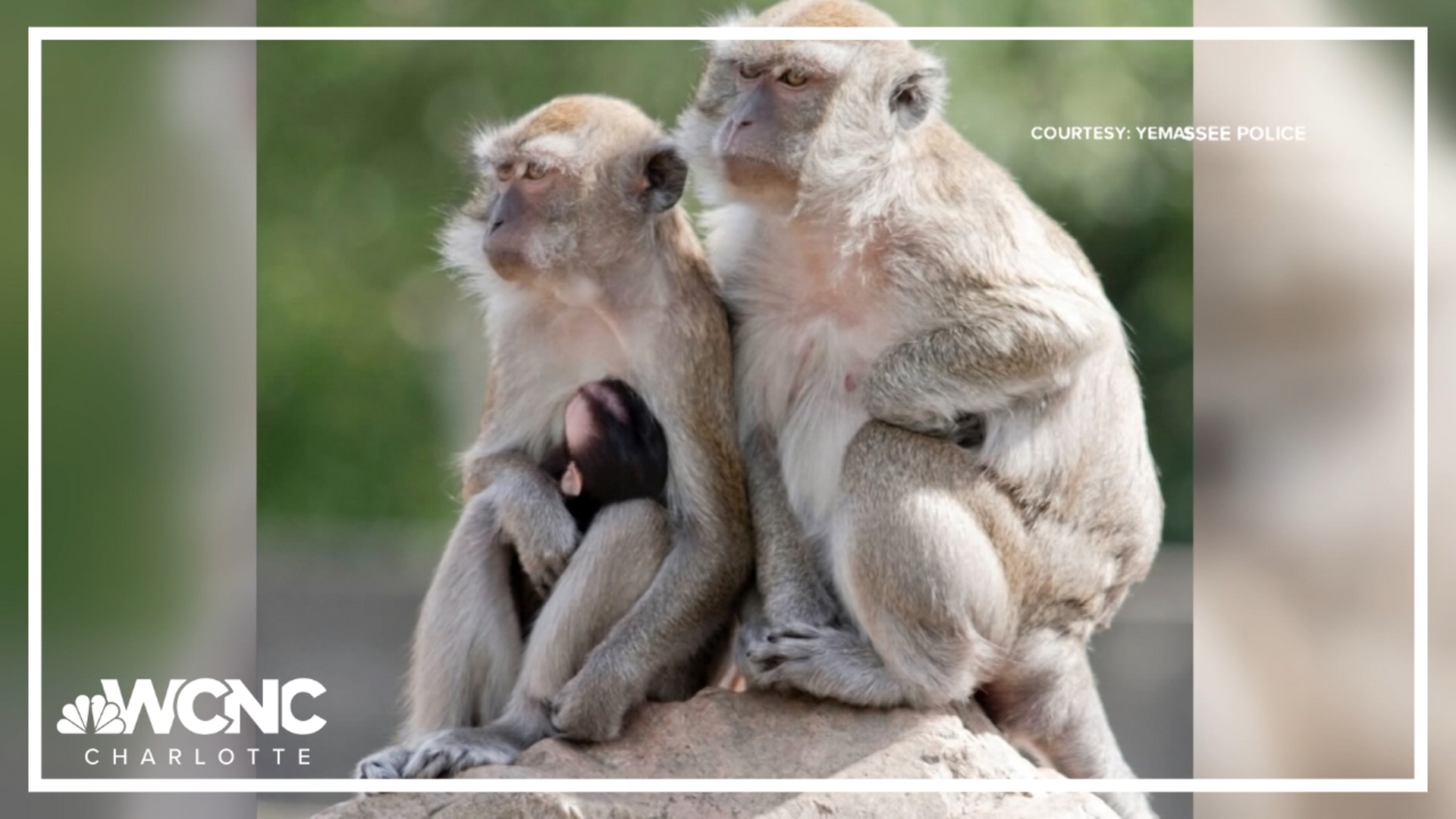YEMASSEE, S.C. — Eleven monkeys are still on the loose, nearly a week after the monkeys escaped a research facility in the South Carolina.
Officials have already captured the rest of the 43 animals that initially escaped Wednesday from Alpha Genesis, a research lab in Yemassee, SC.
RELATED: LATEST: 5 more monkeys from South Carolina research facility have been recovered, authorities say
Animal rights activists said this shouldn't happen again.
"If you can't keep a monkey in a facility, if you can't keep the the enclosures clean, if you can't train your staff well enough, you shouldn't be having monkeys," Lisa Jones-Engel, a primate expert with PETA. "Alpha Genesis has no business being in this monkey business."
Her concerns are validated by USDA inspection reports that detail the facility's past issues, including animals escape, animal injuries and deaths.
In 2022, the USDA cited six separate incidents of animals escaping their enclosures in just that year. The documentation says multiple animals required medical care as a result of their escape.
Citations going back to 2014 show multiple animal deaths. Other incidents accuse the facility of not keeping animals at the proper temperature.
An inspection from just last year cites unclean facilities, saying: "An accumulation of brown debris covered the entire length of the perches and/or enrichment items in six enclosures. A lack of proper cleaning and sanitization can lead to harboring of disease-causing organisms that can produce negative health impacts on the primates."
This is despite the facility's initial statement claiming escaped primates are "too young to carry diseases." Jones-Engel calls those claims "misinformation."
"They're like the poster child for everything that you can do wrong in a primate facility," Jones-Engel said. "The risk of disease transmission was a real concern for the inspectors there."
Calls for change and accountability aren't just directed at the facility; activists like PETA are now looking at Congress.
Activities also include Wayne Pacelle with Animal Wellness Action. He campaigned for the bipartisan passing of the FDA Modernization Act in 2.0, which eliminated the requirement new drugs be tested on animals.
"When it goes to human clinical trials, it fails. So this is just an enormous loss of resources," Pacelle said. "If we can use more effective 21st century methods, it's going to not only avoid pain and torment for animals, but it's also going to lead to lower prices for drugs, quicker delivery of drugs to patients, and a broader set of cures and palliative treatments for consumers."
He says the act hasn't been put into effect fast enough but that this incident could be a catalyst for even more support for the next step: FDA Modernization Act 3.0. This would push the FDA to establish clear guidelines for non-animal testing.
With monkeys still on the loose, the message from police to nearby residents remains the same: If you see a monkey, don't approach it. They're encouraging local residents to lock their doors and windows. They also encourage pets stay indoors.
Yemassee is about 200 miles south of Charlotte, just east of Interstate 95 between Charleston, South Carolina and Savannah, Georgia.
Contact Julie Kay at juliekay@wcnc.com and follow her on Facebook, X and Instagram.

